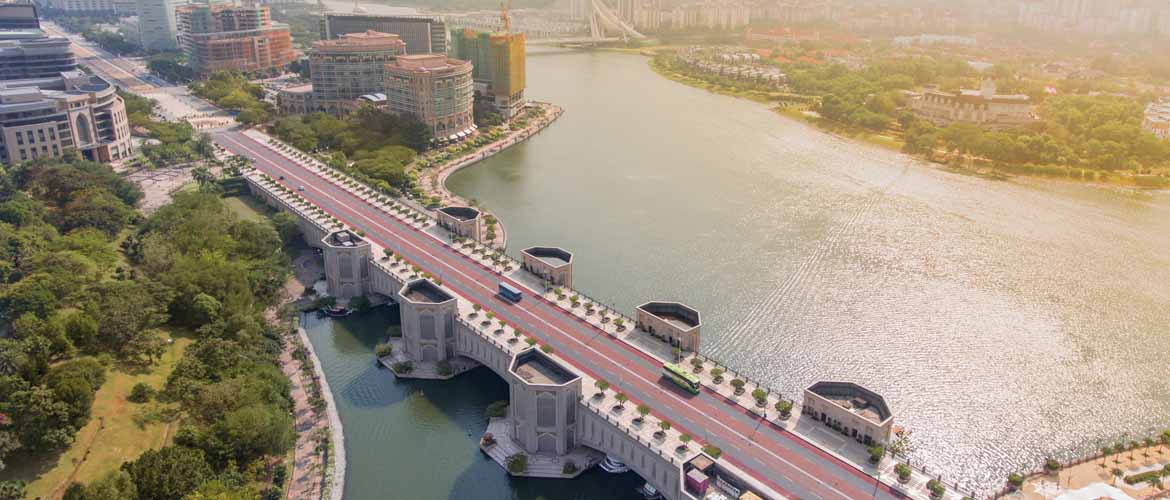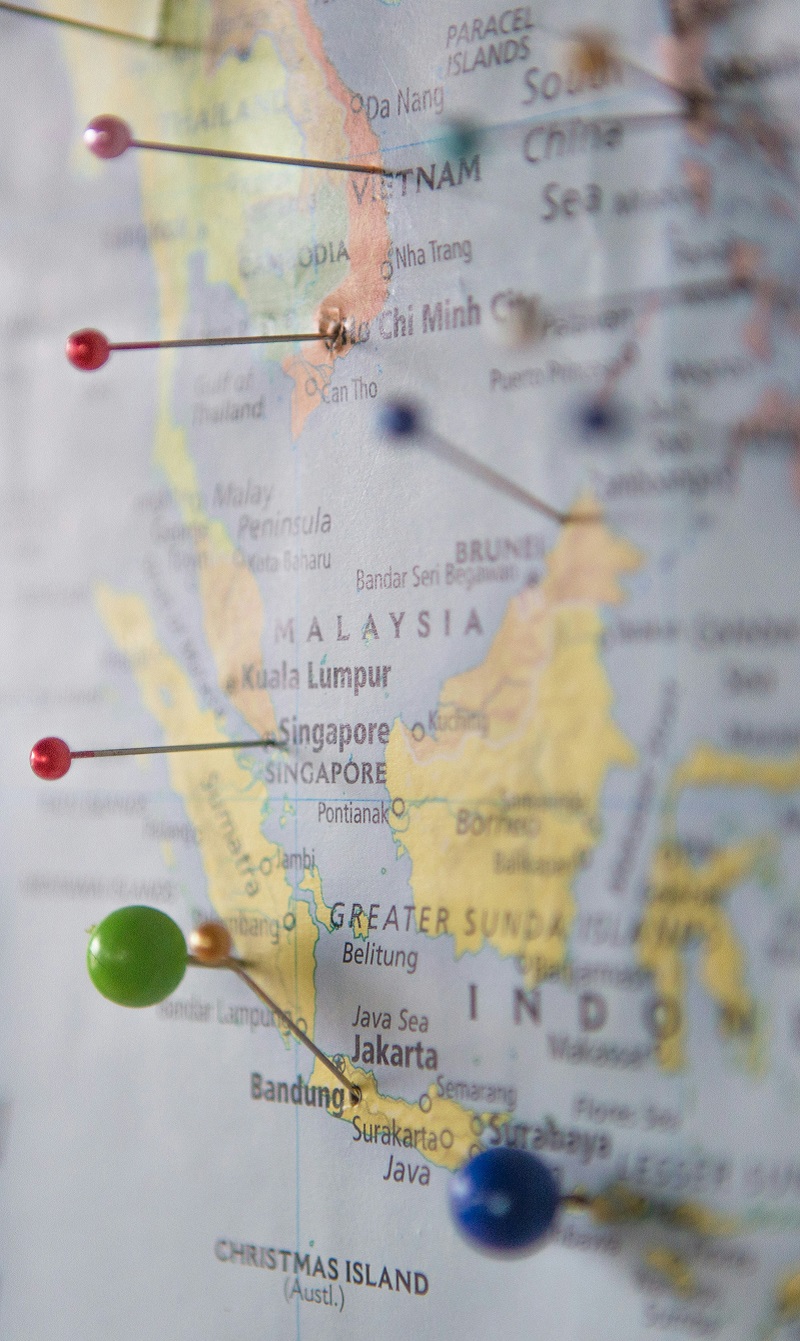A resilient model for developing countries
How should developing nations grow in a way that will result in a more resilient global economy? How can they become robust enough to withstand this period of uncertainty? These were some of the questions that the 10th WIEF panel session attempted to answer under the guidance of moderator Nisha Pillai—a former studio presenter for BBC World News.
Currently, the global economic order seems to rest on unstable foundations. News headlines are discouraging, outlooks are mediocre at best and this situation is expected to continue for some time. Developing countries and emerging economies are poised to capitalise on new opportunities if only they can take advantage of them—but equally, they may be exceptionally vulnerable.
Inspiration from the Islamic identity
Keynote speaker Dato’ Sri Mustapa Mohamed, Minister of International Trade and Industry, Malaysia, noted that the Islamic world today was an unfortunate paradox, being economically weak despite being also resource-rich. Although science and technology were advancing more than ever, a large part of the Muslim ummah suffered from widespread ignorance and backward thinking. This stood in stark contrast to the Golden Age of Islam where ‘the kind of development espoused by Islam focused on social economic justice and the wellbeing of everyone,’ Mustapa said. This was extremely relevant to today’s world of rapidly increasing economic inequality. Currently, half of the world’s wealth goes to the richest 10 per cent while the other half is shared by the remaining 90 per cent.
Mustapa cited an IMF report identifying the three most striking characteristics of economic growth in the 20th century: the unprecedented rate of global population expansion from 1.6 billion in 1900 to 7 billion today, the acceleration of wealth generation and the uneven distribution of wealth.
He then offered some thoughts about how to overcome these challenges. The first was cooperation: ‘We have to look beyond arbitrary borders and instead consider ourselves as one tangible critical mass united by similarities in goals, values and aspirations,’ he said. The second was to channel differences into efforts to rediscover Islamic economic principles and apply them. He noted that this was not a new idea, citing Malaysia’s Tabung Haji (established in 1959 as a fund manager for Hajj pilgrims) and the global Islamic banking industry as successful examples. The third was the importance of regional cooperation as well as organisations such as ASEAN and, finally, Mustapa stressed the importance of political stability to economic progress. Extremism, intolerance, violence and militancy were threats to world peace, and the best way to combat them was through education.
The human smart community
Former advisor to the board of Toshiba Corporation, Atsutoshi Nishida, spoke on how to build a resilient economy from a manufacturing perspective. ‘It is necessary to create mechanisms that are able to generate continuous economic development,’ he said, adding that three major requirements must be met.
The first was education, which provided a foundation for long-term development. Nishida called on governments to promote platforms to help people keep up with advancing technology and to acquire the necessary skills to utilise it.
The second was energy as well as resource conservation and environmental preservation. Nishida called for an urgent reduction of greenhouse gas emissions, which would require quick and radical efforts.
The third was the need to improve the quality of healthcare via technology. He spoke on the effectiveness of a community- based approach and called for a focus on renewable energy, high- quality water and sewage systems, and the construction of smart buildings with energy management systems particularly when considering social infrastructure for frugal communities. These should be supported by robust security systems to protect private records.
‘We believe that the construction of the human smart community represents the way to generate long-term global economic development,’ he added.
Creating demand from supply
The 2008 financial crisis did not spare Dubai but today the Emirate is in much better shape, having created a resilient system over a short period of time. Hisham Al Shirawi, chairman of Economic Zones World (EZW) and vice chairman of the Dubai Chamber of Commerce and Industry, UAE, explained how Dubai was able to achieve this.
By focusing on the fundamentals of economic development and raising the standard of living of its people—as well as opening up to the world and becoming a hub for trade and commerce—Dubai has become one of the most influential cities in the world. Its airport is the second busiest globally with 70 million passengers in 2013 (a figure expected to be surpassed in 2014). The airport is also number one in terms of duty-free sales.
Al Shirawi attributed this success to Dubai’s ability to turn the supply-and-demand model on its head, by first creating supply and only then working on demand.
He cited the Jebel Ali Free Zone (Jafza) which brought a great deal of business to the city, contributing almost 20 per cent of Dubai’s GDP with approximately USD90 billion in trade. Today, one in every 16 Dubai residents works in a job related to Jafza.
‘Diversification is the key to developing a resilient economy,’ he said. As such, EZW (the parent company behind Jafza) is developing “halal zones” for companies specialising in halal products and is aiming to establish Dubai as the capital of the global Islamic economy. Meanwhile, TechnoPark—another member of EZW’s portfolio—has launched the world’s first e-commerce hub. ‘In this way, Dubai has created not only a resilient economy but [also] one of the busiest and friendliest environments for doing business in the world,’ he added.
Balance and basics
Roger Bootle, managing director of Capital Economics in the UK, provided a general overview of global economic expectations. ‘The Islamic world is divided between those countries which already have a very high development and those which are still very much in the emerging market category,’ he said.
He noted that the emerging market had slowed considerably over the past several years—but not because it had exhausted its potential for growth. Referring to the BRIC economies (Brazil, Russia, India and China), Bootle noted that while China was performing as expected, the other three were bogged down by domestic impediments that were hampering growth. Citing the cost of exporting shipping containers as evidence, he observed that fundamental inefficiencies were a strong contributor to these problems.
He also highlighted the importance of balancing a country’s level of investment. He noted that many emerging economies were investing too little in fixed capital and equipment. It was essential to ensure that a sufficient proportion of a national income was devoted to investment instead of just consumption: Brazil, for example, needed to reduce consumption and boost investment while other countries (such as China) experienced the opposite problem.
In response to the generally gloomy outlook, Bootle advised against setting sights too low. ‘Get the basics right and there’s no reason why Islamic countries cannot enjoy rapid rates of economic growth in the years ahead,’ he said.
From social inclusion to economic development
Datuk Ranjit Ajit Singh, executive chairman of the Securities Commission Malaysia opened by saying that this was a time for reform. ‘Despite large growth rates which the countries of BRIC have witnessed, there are many that are still below the level required for economic development,’ he said. The issues were of natural resources being depleted and how innovative methods for development were not being found.
Many of the same models of development were still being applied, even though the economic landscape has changed dramatically over the last decade or two. For example, the rich-poor divide had grown more pronounced. If the top one per cent of the world controlled half of all wealth the rest of the world would have insufficient incentives to work hard. ‘[This is] a problem,’ Ranjit said. ‘It restrains social movement and flow.’
This was of particular concern to a developing society. If a society was built on a dynamic framework in which there was participation from all levels, this could lead to more job opportunities and chances. Furthermore, as a country grows wealthier, it needed to have the ability to distribute this wealth and the associated bene ts throughout all segments of its society. Long-term solutions had to be found.
Positivity, investment and innovation
Following Bootle’s optimism, the other panellists were asked for their thoughts. Al Shirawi felt that pessimism was a recipe
for failure. Instead, the current economic crisis should be thought of as a blessing in disguise because the time immediately following the crisis would be rife with opportunity. ‘I think people with like minds, people who can manage their resources efficiently and people who have vision and patience will be able to use this time to create a better future,’ he said.
Nishida agreed, noting that without optimism it was impossible to create anything new. He felt that innovation and the continuous enhancement of productivity were central to further growth.
Bootle was asked how he could remain optimistic given that many countries, including those previously mentioned, had registered much lower growth than before the financial crisis. He replied that it was disappointing but not a disaster and that people were still being raised out of poverty—albeit at a slower rate. Al Shirawi commented that we should not demand too much growth because it was impossible to grow indefinitely. Furthermore, if the growth rate were high there would be an inevitable disappointment further down the line. ‘A slow, gradual, sustainable growth at low rates is the best for the world,’ he said, adding that investment in education, healthcare and skills should take priority.
Ranjit added that it was important to identify and create opportunities for solutions while ensuring stability. Nishida observed that to invest in the future, companies such as Toshiba needed to make pro ts, in turn requiring constant innovation that could be supported only by the progress of science and technology. Al Shirawi agreed but added that in order for this to be sustainable, manufacturers and others on the supply side needed to take care of the markets they were exporting to, for example by increasing job opportunities in those markets. Ranjit added that it was important to allow for the financing of such innovation, perhaps through SMEs and startups.
Conclusion
Closing the session, each panellist offered a view about the best way forward. Nishida advocated for investment in technology and infrastructure along with the skills to use them. Al Shirawi held up Dubai as a model of success, highlighting some of the business decisions and policies that had the most effect. Bootle maintained his optimism, believing that things were not as bad as they seemed and that a nation could still grow with careful management of capital. The panellists also agreed that it was important to remain positive in order to capitalise on opportunities and to foster an environment of innovation. They also believed that diversification was a smart business decision that could also benefit the community.
___________________
This report is based on a session from the 10th WIEF in Dubai.
Photo Credit:
Ishan @seefromthesky





